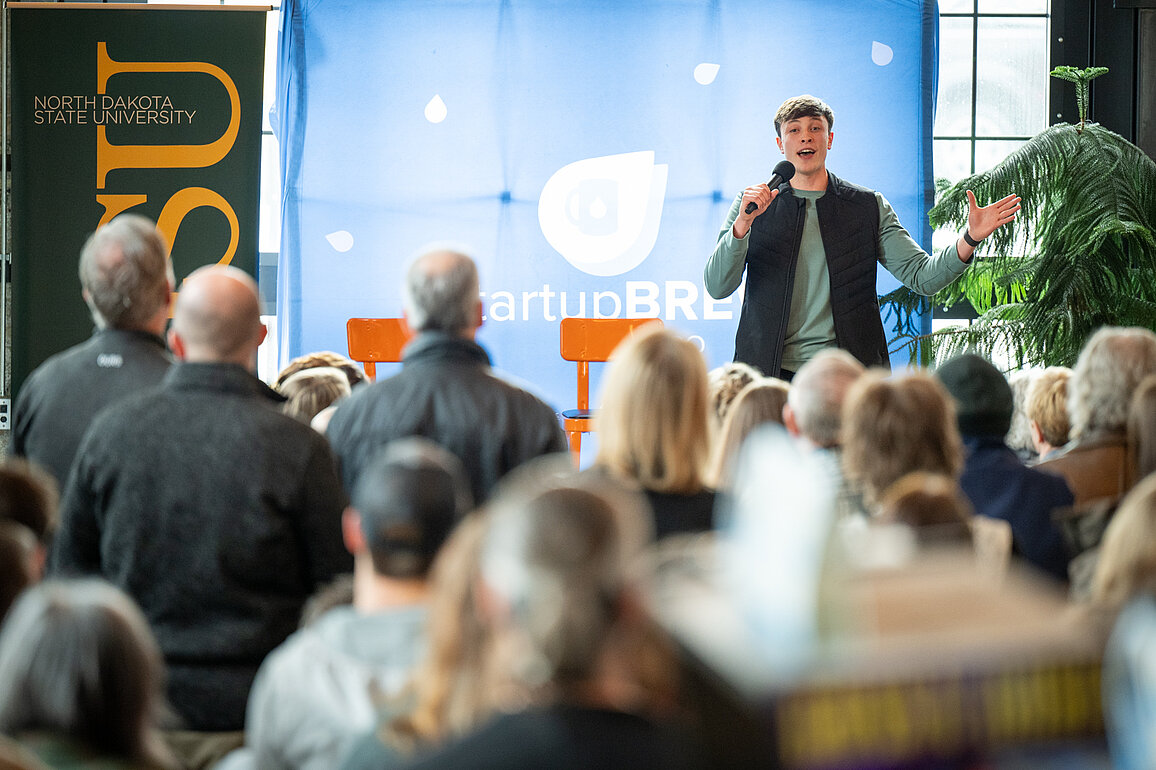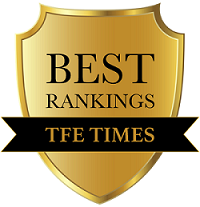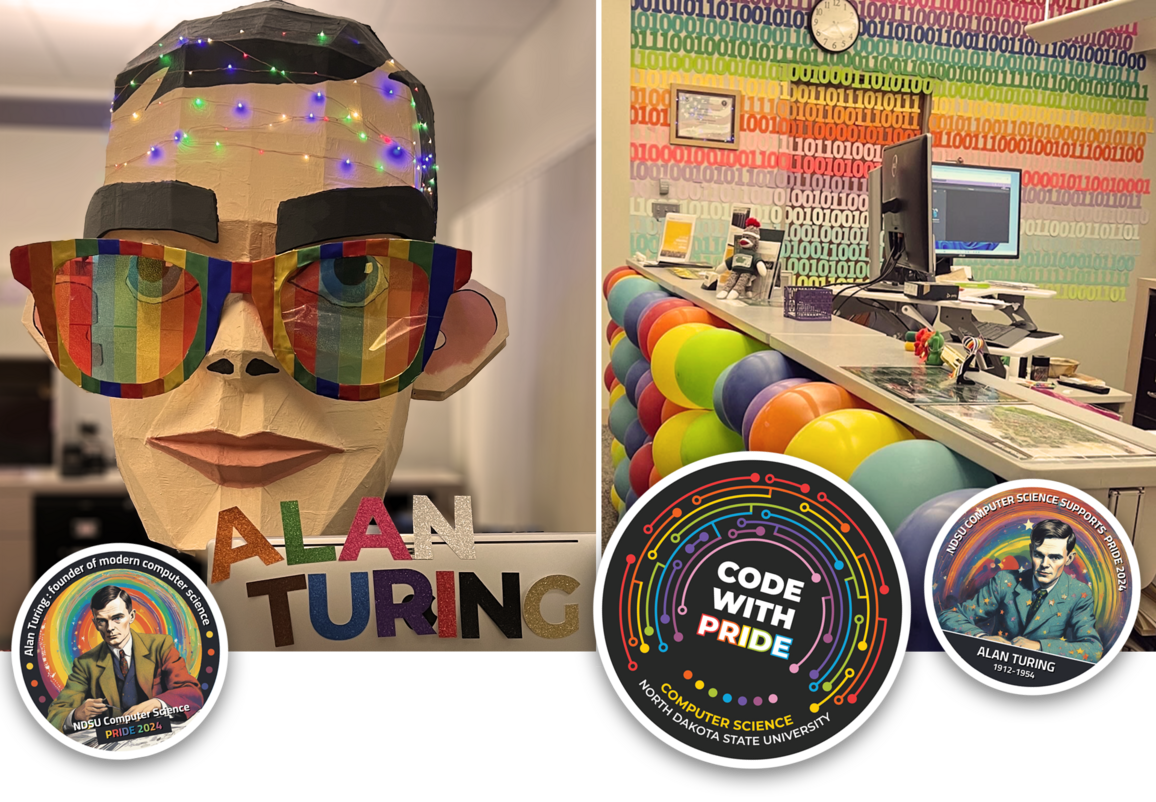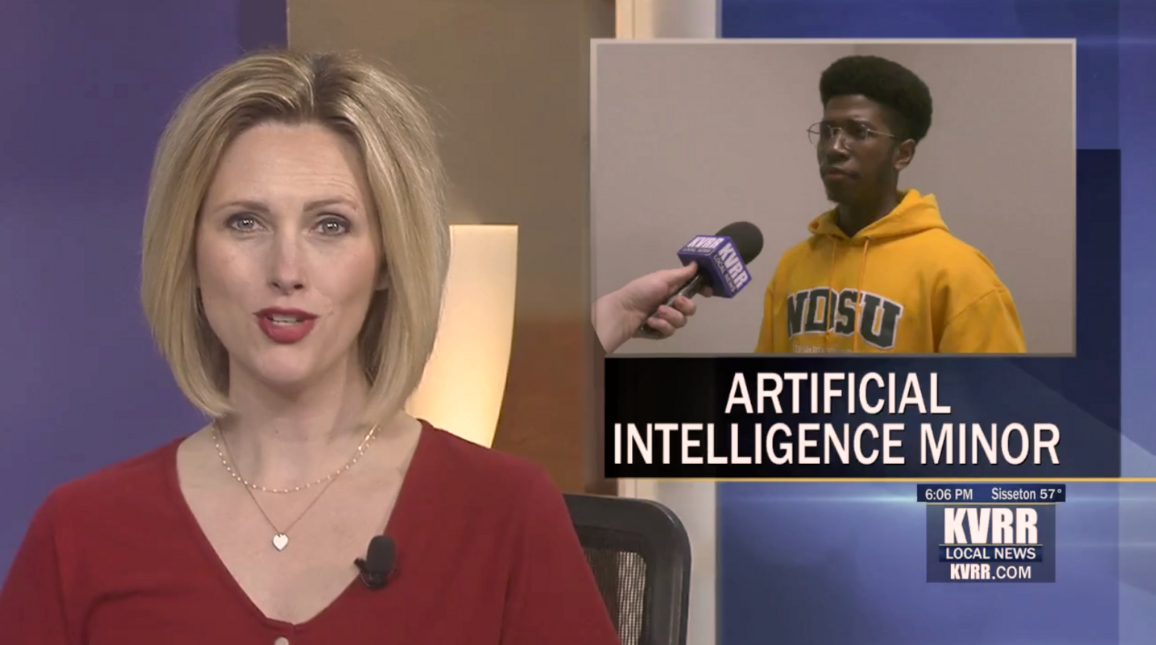
Recent news from the department
Simone Ludwig, Professor and Department Chair
CS student and entrepreneur presents at Fargo's StartupBREW

04/03/2024
As part of NDSU Takeover Day, computer science student William Grube spoke today at Fargo’s StartupBREW, a weekly meetup for entrepreneurs, creatives, and community members. Grube, is the founder of Gruvy Education which provides comprehensive AI training and keynotes to educators and staff. He hopes to equip educators with the knowledge to effectively use AI tools and prepare our educational system for a future where AI tools are exponentially better than what we are seeing today.
He spoke with NDSU's President Cook yesterday about his startup and what his plans are for the future.
"When ChatGPT came out, I thought is was the coolest thing ever. I kind of got a little bit obsessed with it and I really just saw how it was going to change the nature of work forever."
"After I graduate, I’m going to really try and scale Gruvy Education to the biggest company possible. But what I like about entrepreneurship is that I can really go any avenue, so maybe down the road I will be doing something completely different."
Grube is currently pursuing an accelerated master's degree in computer science at NDSU, and aims to make a significant contribution to the fields of education and artificial intelligence. Driven by a strong desire to meaningfully impact how AI is integrated into education, he is preparing both educators and students for a future shaped by technological advancement. You can watch the full video of him with President Cook here.
NDSU ranked in top 100 of best master's of computer science

03/27/2024
North Dakota State University has been identified as one of the best in the nation for a Master's in Computer Science by TFE Times. It ranks graduate programs based on six factors including: student quality, program selectivity, and career outcomes. The ranking methodology is based on:
- 30% Mean GRE Scores
- 25% Mean Starting Salary and Bonus
- 15% Mean Undergraduate GPA
- 15% Acceptance Rate
- 10% Full Time Graduates Employed at Graduation
- 5% Full Time Graduates Employed 3 Months after Graduation
The overall score for each program is the weighted average of each of the components respective score, where the weights sum to 100%. The final scores are normalized and are not rounded.
The TFE Times is an online platform that provides news and programming tips. Some of the programs TFE Times ranks in 2024 include: MBA, Accounting, Marketing, Financial economics, Economics, Business analytics, Financial engineering, Management, Law, Education, Nursing, Social work, Computer engineering, and Computer science.
CS student talks to president Cook about NDSU's new esports lab

April is NDSU Pride

04/08/2024
April is Pride Month at NDSU, and to celebrate the computer science department recently participated in the campus-wide office decorating contest. The goal of the competition is to have a more visually inclusive campus environment leading up to National Day of Silence on April 12th. The department chose once again to honor the founder of computer science, Alan Turing, an English mathematician, computer scientist, logician, cryptanalyst, philosopher, and theoretical biologist. Turing was highly influential in the development of theoretical computer science, providing a formalisation of the concepts of algorithm and computation with the Turing machine, which can be considered a model of a general-purpose computer. He is widely considered to be the father of theoretical computer science and artificial intelligence. Turing was homosexual, for this sole reason, he was arrested in 1952 for indecency and had developed a depression that might have caused his suicide. This tragic fate is a classic example of how society’s prejudice robbed him of a dignified and fulfilling life. Let us not forget this tragic example and keep fighting to promote a more egalitarian culture in honor of Turing’s and so many lives wasted to intolerance. Stop by the department this month to view the decorations and grab a specially designed CS pride sticker!
CS student shares how A.I. minor has impacted his education

03/19/2024
Ian King, a junior in the computer science department, is one of the students that has added the new A.I. minor and was interviewed by KVRR. Watch here
‘Stay up to date with what’s new’

03/12/2024
NDSU’s innovative minor in artificial intelligence allows students to broaden their understanding of AI, prepares them on how and where it can be used and provides practical hands-on experience in utilizing various AI techniques.
The minor, which was launched last fall by the computer science department, is open to students majoring in computer science, as well as students in other departments who want to learn more about the rapidly developing technology. Read more
Have a news item you would like to share? Help us get the word out by submitting it as a Breakthrough Alert. This online form is an easy, step-by-step guide that will walk you through the process. For more information contact kathleen.t.cox@ndsu.edu.
CS alum Kaylee Swenson, talks about her NDSU experience








